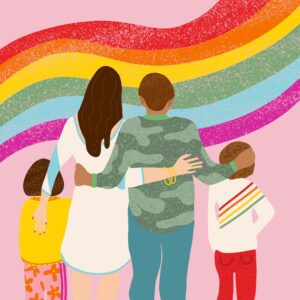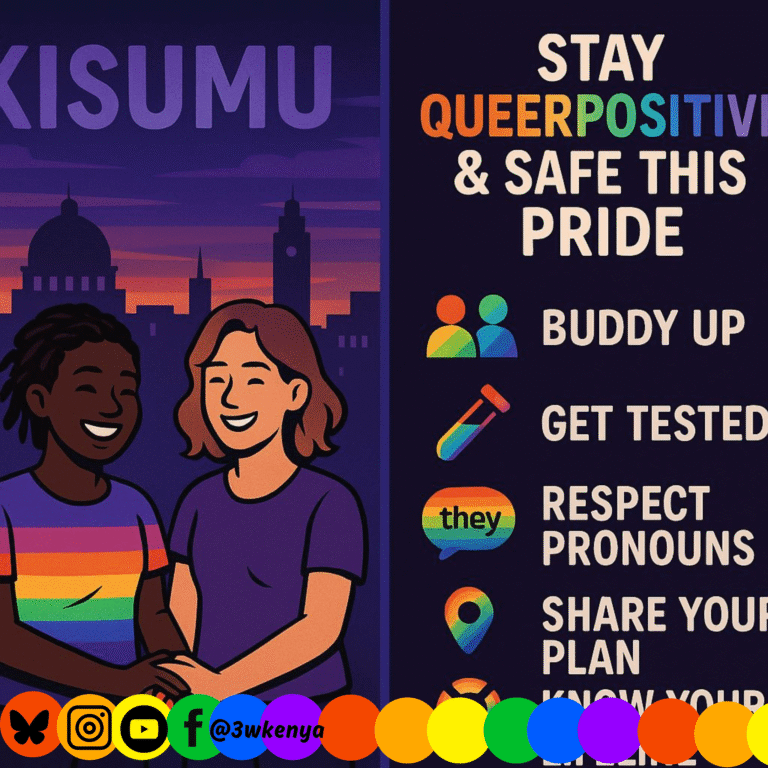Consent: The Double Standard That Fails Minors
Can an LBQT Minor Consent to Safe Abortion? Let’s Settle This Once and for All!
The debate on whether an LBQT minor can consent to safe abortion is like a never-ending soap opera—dramatic, emotional, and, quite frankly, overdue for a plot twist. In Kenya, a minor is anyone under 18, and when it comes to medical decisions, things get murky. But let’s get one thing straight: queer lives matter, and safe abortion should be accessible to all, including LBQT minors.
 The Reality: Queer Minors Exist, and So Do Their Choices
The Reality: Queer Minors Exist, and So Do Their Choices
First things first—LBQT minors are real people with real lives and real problems. Some navigate households where they are misunderstood, others live in child-headed homes, and many experience sexual violence, often in silence. Add the reality of being queer in a society that is still grappling with acceptance, and you’ve got a recipe for complex, high-stakes decisions about pregnancy and reproductive health.
In an ideal world, all minors would have supportive guardians, access to unbiased healthcare, and the freedom to make informed decisions. But we don’t live in an ideal world, do we? We live in a world where queer minors are kicked out of their homes, where some are forced into corrective rape, and where child-headed households are a reality. So, should an LBQT minor be forced to carry an unwanted pregnancy to term because of outdated perceptions about consent? Absolutely not.
Consent: The Double Standard That Fails Minors
The argument against LBQT minors consenting to safe abortion often boils down to: “They are too young to make such a decision.” But here’s the irony—minors in Kenya can consent to carrying a pregnancy to term, yet, when they decide they don’t want to be pregnant, suddenly they are deemed incapable of making an informed choice? If they can endure the physical and psychological toll of pregnancy and childbirth, surely they can decide whether they want to avoid it altogether.
Also, let’s talk about sexual violence. Many LBQT minors face the threat of sexual assault, and in some cases, their pregnancies result from such violence. Are we really suggesting that a queer minor, already vulnerable and possibly traumatized, should have no say in their reproductive future? That they must wait for a parent or guardian (who may not even be in the picture) to sign off on their bodily autonomy? It’s a cruel, impractical, and dangerous notion.
The Law and the Role of Medical Providers
Now, before the morality police start throwing legal jargon at us, let’s break it down. The Constitution of Kenya, under Article 26(4), allows abortion if, in the opinion of a trained medical provider, it is necessary for the life or health of the pregnant person. This provision is key because it recognizes that every case is unique and that healthcare professionals—not politicians, religious leaders, or Twitter warriors—are best placed to make these decisions.
This means that an LBQT minor does not need parental consent to access safe abortion. Instead, the medical provider has the discretion to assess the minor’s need for the procedure. And given the social and economic realities many queer minors face, denying them access to safe abortion can have devastating consequences on their health, education, and future prospects.
The Kenyan Family Landscape: Not All Homes Are Equal
Another thing that needs to be said—Kenyan families are not monolithic. Some minors are orphans, others live in abusive households, and some are the heads of their own homes. When a minor is already making adult decisions—caring for siblings, managing household finances, and surviving in a harsh world—why should their ability to consent to a safe medical procedure be questioned? If we trust them to make life-altering decisions in every other aspect of their lives, we should trust them to decide what happens to their bodies.
The Verdict: Yes, an LBQT Minor Can Consent to Safe Abortion
After unpacking all these realities, the answer is clear: Yes, an LBQT minor can and should be able to consent to safe abortion. And that is precisely why the Constitution of Kenya gives medical providers the power to assess the need for abortion. The law recognizes that minors, especially those in vulnerable situations, should not be subjected to unnecessary barriers when seeking reproductive healthcare.
Denying queer minors the right to make decisions about their bodies is not about protecting them—it’s about controlling them. Safe abortion is healthcare, and healthcare is a human right. We must advocate for policies and practices that ensure LBQT minors have access to safe, legal, and stigma-free abortion services. Because at the end of the day, queer lives matter, and that includes the lives of LBQT minors making choices about their own futures.
So, let’s stop debating and start advocating. The fight for safe abortion isn’t just about legality—it’s about justice, dignity, and the right to choose. And that, my friends, is the real plot twist we need.



